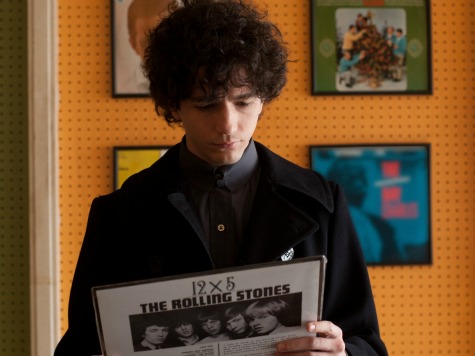
“Not Fade Away,” David Chase’s passion project about the rockin’, rebellious ’60s, lacks cohesion, compelling characters and, well, passion.
Chase, the creator of HBO’s iconic mob drama “The Sopranos,” makes his directorial debut with a tale of a teen who finds purpose within the comfort of a rock ‘n’ roll band. Chase parachutes audiences directly into the days when the Rolling Stones loomed larger in teenagers’ lives than their parents. It’s a parade of characters we’ve met before, set against retro landscapes in search of significance.
You won’t find a lick of “Sopranos”-style excess here, even though the erstwhile Tony Soprano plays the main character’s exasperated pappy.
Douglas (John Magaro) is just another Jersey teen trying to make sense of life and love when he discovers the cache of being in a rock band. He starts out stuffed behind a drum kit, but when given the chance to sing lead his world expands, as do the prospects for his young group. Suddenly a musical lark looms as a way to escape the societal norms set up for Douglas by his strict parents. James Gandolfini hits all the notes you expect as the gruff father figure, but he does so in a way that still shows paternal love.
Douglas’ newfound fame attracts a local beauty (Bella Heathcote), starting a romance that never takes hold in our imagination.
Chase shouldn’t be chastised for tilling familiar turf throughout “Not Fade Away.” The ’60s exist to be reinterpreted for a new generation. The familiar cultural touchstones, like arguments over the war in Vietnam, are used to navigate Douglas’ growing sense of self. We should be marveling at how Douglas’ youthful confusion mirrors what we felt as teens no matter the era we called our own. Instead, we’re kept at a distance, both by Magaro’s lack of magnetism and a character arc that makes us wonder why we should care in the first place.
We know early on that Douglas isn’t bound for Beatles-esque glory, but he and his band mates approach potential fame like a blind date they’d rather skip.
Had Chase been given an HBO perch to tell this story over a series of detailed episodes, Douglas’ journey might have been worth a look. Instead, we see the potential behind Chase’s eagerly awaited film debut but can’t help acknowledge the sense of disappointment which grows with every sequence.
“Not Fade Away” ends on an artistically inventive note, the mark of an auteur with an overdeveloped sense of confidence. It might have been sublime had a totally different movie preceded it.

COMMENTS
Please let us know if you're having issues with commenting.